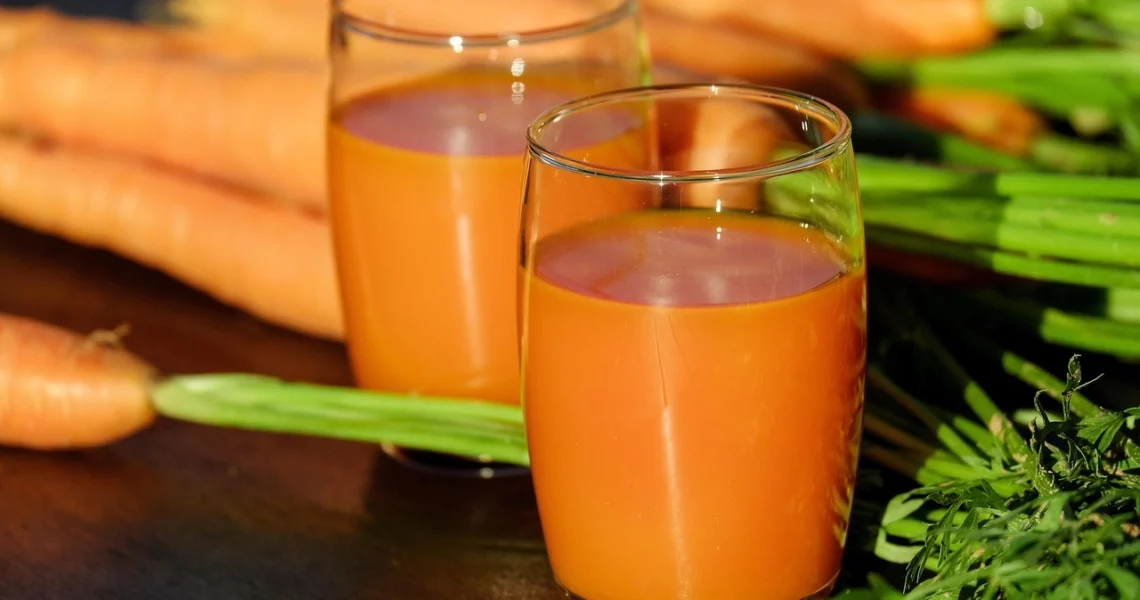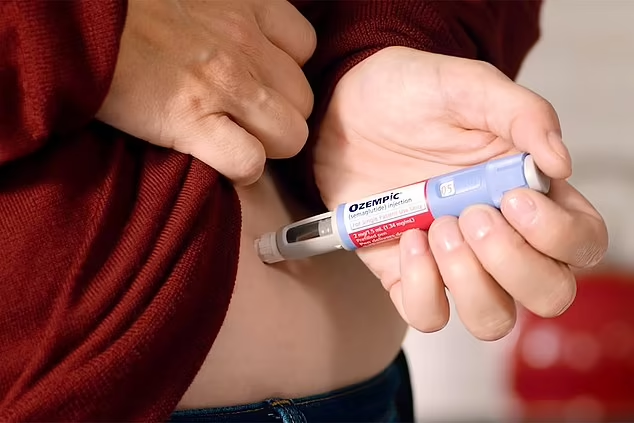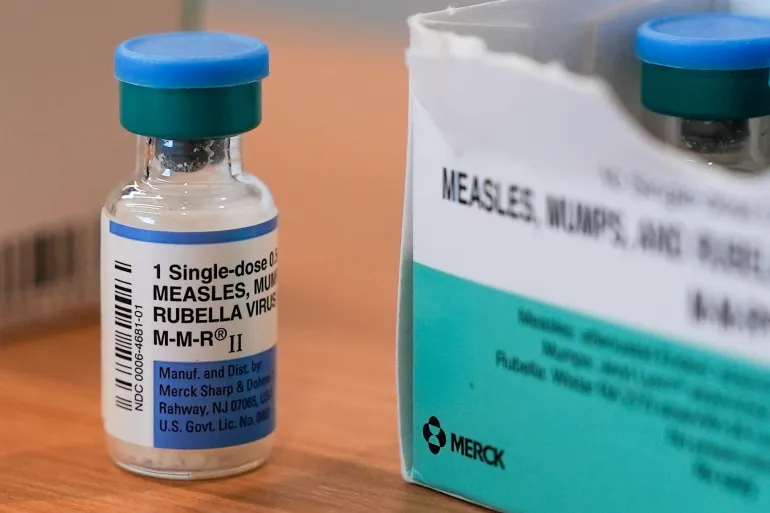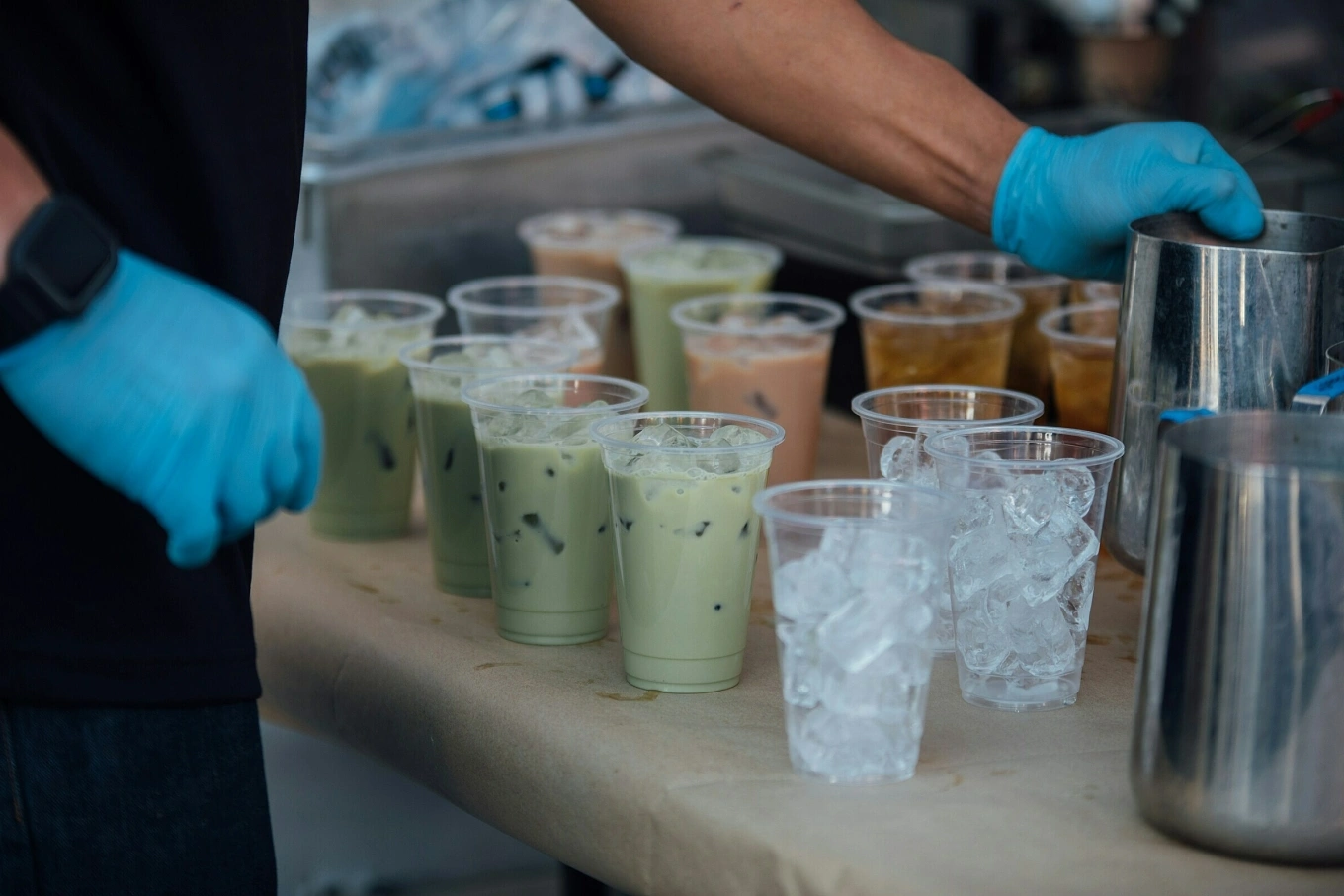7 Health Boosts From Carrot Juice
Carrot juice, a vibrant and nutrient-dense beverage, stands out as a powerhouse of essential vitamins, potent antioxidants, and beneficial dietary fiber. This golden elixir offers a remarkable spectrum of health advantages that extend across multiple bodily systems. From fortifying visual acuity to bolstering the body’s natural defenses and safeguarding vital organs, its benefits are extensive. Incorporating this simple yet powerful juice into one’s daily diet can contribute significantly to overall well-being. Its natural composition makes it an excellent choice for those seeking to enhance their nutritional intake through a convenient and delicious liquid form.
1. May Improve Eye Health
Carrot juice holds a prominent reputation for its profound benefits to eye health, a claim strongly supported by its rich nutritional composition. At the forefront of its eye-boosting capabilities is its exceptional concentration of vitamin A. This fat-soluble vitamin is absolutely vital for maintaining good vision, particularly in low-light conditions. Vitamin A is a key component of rhodopsin, a protein found in the retina that converts light into electrical signals sent to the brain, enabling sight.
Scientific research has consistently linked the consumption of foods high in provitamin A (like carrots) to a significantly reduced risk of various age-related eye diseases and even blindness. Conditions such as xerophthalmia, a progressive eye disease that can lead to blindness, are often a direct result of vitamin A deficiency. Regular intake of provitamin A helps prevent such deficiencies and supports the overall health of the ocular system.
Beyond vitamin A, carrot juice is a treasure trove of other eye-protective compounds. It contains significant amounts of lutein and zeaxanthin. These specific carotenoids are known to accumulate in the macula, a part of the retina responsible for sharp, central vision. Acting as natural sunscreens, lutein and zeaxanthin help to filter out harmful high-energy blue light that can cause oxidative damage to the delicate cells of the eye.
Studies strongly suggest that adequate intake of these carotenoids may effectively lower the risk of age-related macular degeneration (AMD), a leading cause of vision loss in older adults. By protecting the macula, they help preserve central vision, crucial for tasks like reading and recognizing faces. Thus, incorporating carrot juice into your diet can be a proactive step towards long-term eye health and vision preservation.
2. May Boost Immunity
Carrot juice serves as an excellent natural tonic for enhancing the body’s immune system, thanks to its impressive array of vitamins crucial for defense mechanisms. It is an outstanding source of vitamins A, C, and B6, all of which play distinct yet synergistic roles in supporting a robust and responsive immune system.
Vitamin A, abundant in carrot juice as beta-carotene, is essential for the healthy functioning of various immune cells. It helps maintain the integrity of mucosal surfaces in the eyes, respiratory tract, urinary tract, and gut, forming a critical first line of defense against pathogens. Vitamin A also plays a role in the production and function of white blood cells, which are the body’s primary defenders against infections.
Vitamin C is a well-known powerhouse for immunity. It acts as a potent antioxidant, protecting immune cells from oxidative stress and damage caused by free radicals generated during immune responses. Furthermore, vitamin C is vital for the production and function of phagocytes (immune cells that engulf harmful particles) and lymphocytes (B-cells and T-cells) which are critical for adaptive immunity. It also aids in the synthesis of collagen, supporting the integrity of the skin, another important physical barrier against pathogens.
Vitamin B6, in particular, is absolutely essential for optimal immune function. It is involved in over 100 enzyme reactions in the body, many of which are directly related to the immune system. Vitamin B6 plays a critical role in the production of antibodies and the proliferation of lymphocytes, key components of the adaptive immune response. A deficiency in vitamin B6 has been directly linked to weakened immunity, making individuals more susceptible to infections.
Moreover, the collective power of antioxidants present in carrot juice extends beyond just vitamins A and C. Carotenoids, polyphenols, and other bioactive compounds work together to help protect all immune cells from free radical damage. This cellular protection is crucial, as it ensures that immune cells can function efficiently without being compromised by oxidative stress, thereby further enhancing overall immune function and resilience against illness.
3. May Provide Anticancer Effects
The potential of carrot juice in the realm of cancer prevention and treatment is an area of growing scientific interest, primarily due to its unique composition of bioactive compounds. Carrot juice contains a notable array of substances that have shown promising anticancer effects in preliminary research. These include polyacetylenes, beta carotene, and lutein.
Beta carotene, the vibrant orange pigment and a precursor to vitamin A, has long been studied for its antioxidant properties and its potential role in cell regulation. Lutein, another powerful carotenoid, also contributes to the antioxidant defense system, which is crucial in combating the cellular damage that can lead to cancer. Polyacetylenes, however, are perhaps the most intriguing compounds in carrots regarding cancer research. These unique compounds are believed to have direct cytotoxic effects, meaning they can be toxic to cancer cells while sparing healthy ones.
Various test-tube and animal studies have explored the impact of these carrot compounds on cancer. For instance, some research has indicated that polyacetylenes may help to inhibit the growth of cancer cells and even induce cancer cell death (apoptosis). Specific studies have shown promising results particularly in the context of leukemia and colon cancer cells, where these compounds appeared to disrupt cancer cell proliferation and promote their elimination.
It is crucial to emphasize, however, that while these early findings are highly encouraging, human research is still critically needed to fully substantiate these anticancer claims. Test-tube and animal studies provide valuable insights and pave the way for future investigations, but their results cannot be directly extrapolated to human efficacy or safety. Despite this, the consistent signals from preliminary research suggest that the compounds found in carrot juice may indeed play a role in inhibiting cancer cell growth and promoting cancer cell death. This makes carrot juice a compelling subject for continued scientific exploration in the fight against cancer.
4. May Improve Blood Sugar Management
For individuals concerned about blood sugar levels, particularly those with diabetes, carrot juice offers a nuanced benefit that can contribute to better blood sugar management when consumed judiciously. While fruits and fruit juices can sometimes be a concern due to their natural sugar content, drinking small amounts of carrot juice may actually help support blood sugar regulation.
The mechanisms behind this potential benefit are still being explored, but some animal studies have yielded promising results. For instance, research suggests that fermented carrot juice can play a role in lowering blood sugar levels and improving various diabetes-related markers. Fermentation can alter the nutritional profile of foods, potentially reducing sugar content and increasing beneficial compounds. While human studies are needed to confirm these effects, the initial findings are encouraging.
Another important factor contributing to carrot juice’s suitability for blood sugar management is its low glycemic index (GI). The glycemic index is a system that ranks carbohydrate-containing foods by how much they raise blood glucose levels after eating. A low GI means that carrot juice has a minimal impact on blood sugar levels compared to other high-GI beverages. Many fruit juices, particularly those with added sugars or higher concentrations of rapidly absorbed natural sugars, can cause significant spikes. Carrot juice, with its moderate natural sugar content and presence of fiber, offers a more gradual release of glucose into the bloodstream.
However, despite its low GI, it is absolutely crucial to consume carrot juice in moderation, particularly for those with diabetes. The emphasis is on “small amounts” because while better than high-GI alternatives, it still contains natural sugars. For individuals managing diabetes, portion control is paramount to avoid any unintended blood sugar fluctuations. Overconsumption could negate the benefits and potentially lead to undesirable glucose spikes. Therefore, conscious and measured intake is the key to leveraging carrot juice for supporting blood sugar regulation within a diabetic diet.
5. May Improve Skin Health
Carrot juice is a celebrated elixir for radiant and healthy skin, thanks to its powerful combination of key vitamins and antioxidants. Two of the most significant contributors to its skin-enhancing properties are vitamin C and beta carotene, both of which are absolutely essential for optimal skin health.
Vitamin C is a cornerstone of skin integrity. It is critically necessary for the production of collagen, a fibrous protein that forms the main structural component of skin, bones, tendons, and ligaments. Collagen provides the skin with its elasticity and strength, helping it remain firm and resilient. Adequate vitamin C intake ensures robust collagen synthesis, which in turn helps to reduce the appearance of wrinkles, improve skin texture, and promote a youthful complexion.
Beta carotene, the precursor to vitamin A, functions as a potent antioxidant. Its role is to protect the skin from free radical damage. Free radicals are unstable molecules that can harm skin cells, leading to premature aging, fine lines, and dullness. Beta carotene also offers a degree of protection against harmful ultraviolet (UV) rays from the sun. While it’s not a substitute for sunscreen, consistent intake of carotenoids can contribute to the skin’s natural defense against sun-induced damage, reducing the risk of sunburn and long-term photoaging.
According to insights published by the Times of India, the high vitamin A content (derived from beta carotene) in carrot juice further contributes to healthy skin. Vitamin A plays a vital role in cell turnover and repair processes. It helps to combat acne by reducing sebum production and promoting healthy skin cell regeneration, which can prevent clogged pores. Moreover, vitamin A aids in the repair of skin damage, promoting faster healing and reducing the appearance of scars.
Beyond its individual components, a diet consistently rich in carotenoids, such as those abundantly found in carrot juice, may broadly improve overall skin appearance. This includes a more even skin tone, enhanced glow, and a healthier complexion. Furthermore, the collective antioxidant power offered by these carotenoids can provide an internal defense system, offering substantial protection against UV-induced skin damage. This makes carrot juice a valuable dietary addition for anyone seeking to nurture their skin from within, promoting both its aesthetic appeal and its long-term health.
6. May Boost Heart Health
Carrot juice contributes significantly to cardiovascular well-being through several key mechanisms, primarily attributed to its rich content of potassium and a diverse array of antioxidants. These components work synergistically to support a healthy heart and circulatory system.
The potassium content in carrot juice is particularly beneficial. Potassium is an essential mineral that plays a crucial role in regulating fluid balance and muscle contractions, including those of the heart. Most importantly, it helps to regulate blood pressure. Maintaining healthy blood pressure is a critical factor for heart health, as consistently high blood pressure (hypertension) is a major risk factor for heart disease and stroke.
Numerous scientific studies have consistently shown that a potassium-rich diet can effectively help protect against high blood pressure. This is largely because potassium helps to counteract the effects of sodium in the body, promoting its excretion and thereby reducing fluid retention and pressure on blood vessel walls. By aiding in blood pressure regulation, sufficient potassium intake directly contributes to a reduced workload on the heart and arteries. This, in turn, can significantly lower the risk of stroke, a devastating cerebrovascular event often linked to uncontrolled hypertension.
Beyond potassium, the antioxidants abundant in carrot juice offer another layer of cardiovascular protection. These include carotenoids like beta-carotene, lutein, and zeaxanthin, as well as vitamin C. These antioxidants actively work to reduce the oxidation of blood lipids, particularly low-density lipoprotein (LDL) cholesterol, often referred to as “bad” cholesterol. When LDL cholesterol becomes oxidized, it can contribute to the formation of plaque in the arteries, a process known as atherosclerosis.
This hardening and narrowing of the arteries are primary causes of heart disease. By reducing lipid oxidation, the antioxidants in carrot juice help to maintain the flexibility and health of blood vessels, thereby lowering the risk of developing heart disease. Regular consumption of carrot juice, as part of a balanced diet, can therefore serve as a delicious and effective strategy for promoting long-term cardiovascular health.
7. May Protect Your Liver
The liver is a vital organ responsible for countless metabolic functions, including detoxification, nutrient processing, and bile production. Maintaining its health is paramount, and carrot juice offers promising benefits in this regard, particularly through its potent carotenoid content.
Carrot juice contains a high concentration of carotenoids, which are well-known for their anti-inflammatory and antioxidant properties. These attributes are crucial for protecting the liver from various forms of damage. The liver is constantly exposed to toxins and undergoes significant metabolic activity, which can generate free radicals and lead to oxidative stress and inflammation. The antioxidants in carrot juice help to neutralize these free radicals, thereby helping to protect the liver cells from oxidative damage. The anti-inflammatory effects can help to reduce chronic inflammation within the liver, a common precursor to various liver diseases.
Preliminary animal studies have provided encouraging insights into carrot juice’s liver-protective capabilities. Some research suggests that regular consumption of carrot juice may actively reduce markers associated with nonalcoholic fatty liver disease (NAFLD). NAFLD is a condition characterized by excessive fat accumulation in the liver, often linked to obesity and insulin resistance. It can progress to more severe forms of liver disease if left unchecked. While these animal study results are promising, it is important to note that more human research is needed to definitively confirm these effects and understand the precise mechanisms in the human body.
Beyond NAFLD markers, these beneficial carotenoids may also play a direct role in reducing overall liver inflammation. Chronic inflammation can impair liver function and lead to long-term damage. By mitigating this inflammatory response, carrot juice contributes to improving overall liver health and supporting its optimal functioning. Integrating carrot juice into a healthy diet can therefore be a proactive step towards nurturing this essential organ and supporting its critical roles in maintaining systemic health.
Important Considerations and Precautions
While carrot juice boasts an impressive array of health benefits, it’s crucial to consume it mindfully and be aware of certain precautions, particularly regarding excessive intake and specific health conditions. Even healthy foods can have unintended effects if consumed in disproportionate amounts.
One notable consideration is the potential for a condition known as carotenemia. This harmless but visually striking condition can occur when individuals consume excessive amounts of beta carotene, the pigment responsible for carrots’ vibrant orange color. When high levels of beta carotene accumulate in the bloodstream and tissues, it can cause the skin to take on a yellowish-orange hue. While carotenemia is not harmful to health and typically resolves once beta carotene intake is reduced, it can certainly be alarming for those unfamiliar with it. It serves as a visual cue that one’s intake of beta-carotene-rich foods, like carrot juice, might be too high.
For individuals with diabetes, particular vigilance is required regarding carrot juice intake. While previous sections highlighted its low glycemic index and potential benefits for blood sugar management, the key lies in moderation. Unlike whole carrots, which retain all their fiber, carrot juice has a significantly lower fiber content due to the juicing process that separates pulp from liquid.
Fiber plays a crucial role in slowing down sugar absorption, preventing rapid spikes in blood glucose. Therefore, without the intact fiber, drinking too much carrot juice may indeed cause a rapid increase in blood sugar levels for diabetics, potentially counteracting the desired regulatory effects.
To mitigate this risk, it is strongly recommended to consume about 4 ounces (approximately 118 ml) per serving for individuals with diabetes. This controlled portion size helps to provide the nutritional benefits without overwhelming the body’s glycemic control mechanisms, thereby avoiding any undesirable spikes in blood sugar levels. Diabetics should also consider pairing carrot juice with meals that contain protein and healthy fats, further helping to stabilize blood glucose.
As always, for individuals with specific health conditions like diabetes, consulting a healthcare professional or a registered dietitian for personalized dietary advice is paramount to ensure safe and beneficial inclusion of foods like carrot juice into their diet plan.






